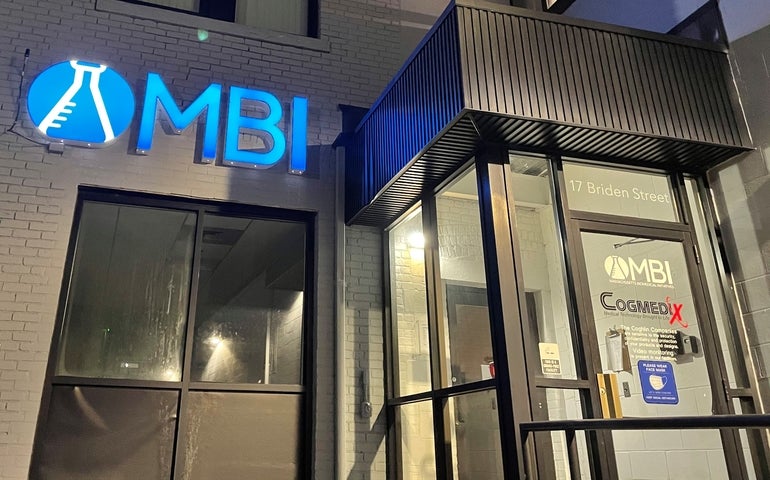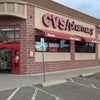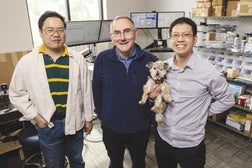With $39M in seed funding, Worcester startup aims to develop ALS, schizophrenia treatments
 Photo | Courtesy | Massachusetts Biomedical Initiatives
Massachusetts Biomedical Initiatives' space on Briden Street in Worcester.
Photo | Courtesy | Massachusetts Biomedical Initiatives
Massachusetts Biomedical Initiatives' space on Briden Street in Worcester.
Leal Therapeutics, a startup headquartered in Worcester, has emerged from operating in stealth mode for the past two years with an ambitious goal: developing breakthroughs to lead to effective treatments for diseases impacting the central nervous system, including schizophrenia and ALS.
News of Leal’s emergence from stealth was announced in an industry trade publication in February, alongside details of a fundraising campaign where the company raised $39 million in seed funding during 2022. The company is working closely with Worcester incubator Massachusetts Biomedical Initiatives as its navigates its growth and seeks to raise more money.
Leal’s founder Dr. Asa Abeliovich is no stranger to successful pharmaceutical endeavors. A physician and professor with a doctor of medicine degree from Harvard University and a PhD in philosophy from the Massachusetts Institute of Technology, Abeliovich has previously launched two companies: Prevail Therapeutics, a New York-based company focused on gene therapies that was acquired by Eli Lilly and Co. in 2020, and Alector, a California biopharma company that began trading on the Nasdaq in 2019.
ALS is certainly a condition that could use the attention of more experts. Existing ALS drugs only target a small subset of people, but Leal seeks to cast a broader net, leading to treatments effective for a much wider population of those who are struggling with the neurodegenerative disease, said Eduardo Paredes, vice president of chemistry, manufacturing, and controls at Leal.
“We’re going after one of the underlying causes of the disease, targeting that genetically,” Paredes said. “We hope that, with early intervention, we’ll see a significant effect. Not just in quality of life, but also seeing the phenotype of the disease being reversed.”
Leal’s team is spread out across the world, but Paredes said the existence of UMass Chan Medical School and Worcester Polytechnic Institute made Central Massachusetts an attractive place to locate, giving the company access to potential employees and the ability to utilize facilities at these two institutions. Lower costs associated with setting up shop in Worcester when compared to locations such as Cambridge have allowed Leal to have a bigger footprint than would otherwise be possible.
But perhaps the biggest Central Massachusetts-related benefit to Leal has been its partnership with the Worcester-based Massachusetts Biomedical Initiative, the state’s oldest life science incubator that has graduated companies like Stryker, a medical device firm based in Michigan now with more than 52,000 employees worldwide, and Invetx, a maker of protein-based therapeutics for animal health based in Boston.
“MBI makes it really easy, and they are very well-connected in the area,” said Paredes. “They’ve helped us a lot in identifying assets we can use for the business. It’s actually been quite easy to be housed in Worcester compared to other areas.”
Zu Shen, vice president of MBI, said Leal’s decision to locate in Worcester was very intentional. Much of Leal’s team is within commuting distance of the city, and Abeliovich had little interest in locating in more expensive and less accessible spots like Boston or Cambridge.
“Leal’s story is pertinent, because we’ve been able to attract a lot more high-flying startup companies that really see the value in being in Worcester,” he said, pointing to the region’s lower cost of living and large body of college students making hiring young talent all the more easier.
MBI was introduced to Leal through one of MBI’s board members, kicking off a relationship beneficial for both parties, Shen said.
“The team is superb. We’ve had wonderful experiences with them, they’re all very reasonable people and very intelligent scientists,” he said.
Beyond offering startups like Leal an actual physical space to conduct their research, MBI attempts to serve as an extension of companies’ teams, helping with tasks like addressing permitting issues or setting up lab space.
Even as the Leal continues its growth, Shen said MBI will still be there to support the company as it addresses the challenges of bringing a therapeutic all the way from the preclinical phase through approval by the U.S. Food and Drug Administration.
And what’s next for Leal? Paredes said the company has received exciting pre-clinical data, suggesting its compounds are working effectively and safely, with evidence suggesting their intended benefit is being carried out.
The company is in the middle of its Series A funding round, which it hopes to close in the next few months, Paredes said.
“That funding would give us a lot of flexibility for a few years to get to the first clinical inflection point, which is where we’re trying to get,” he said.













0 Comments